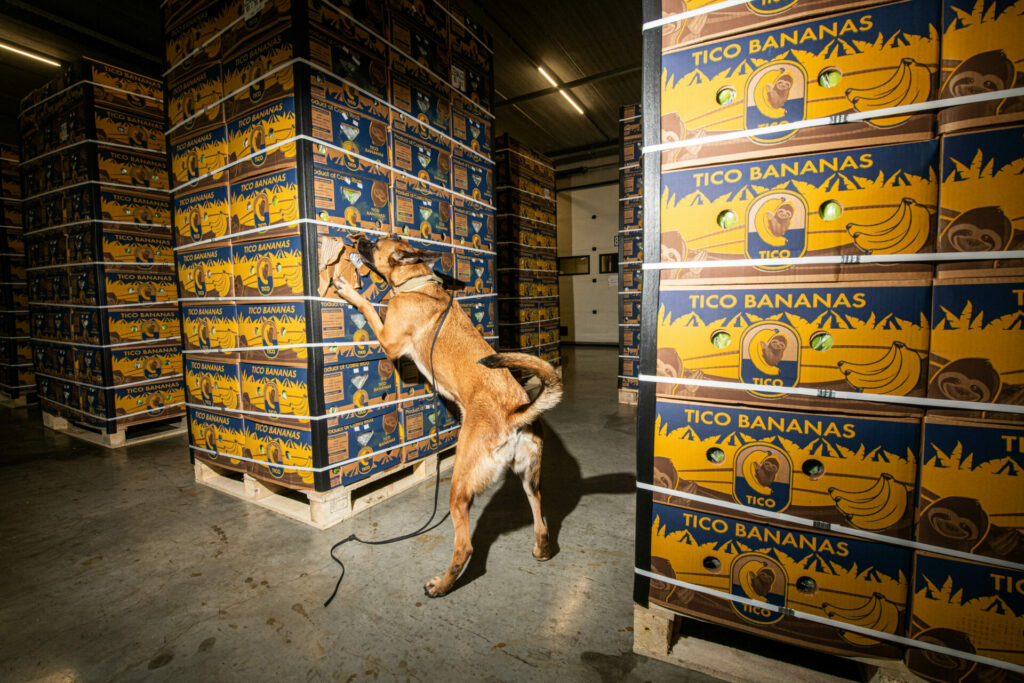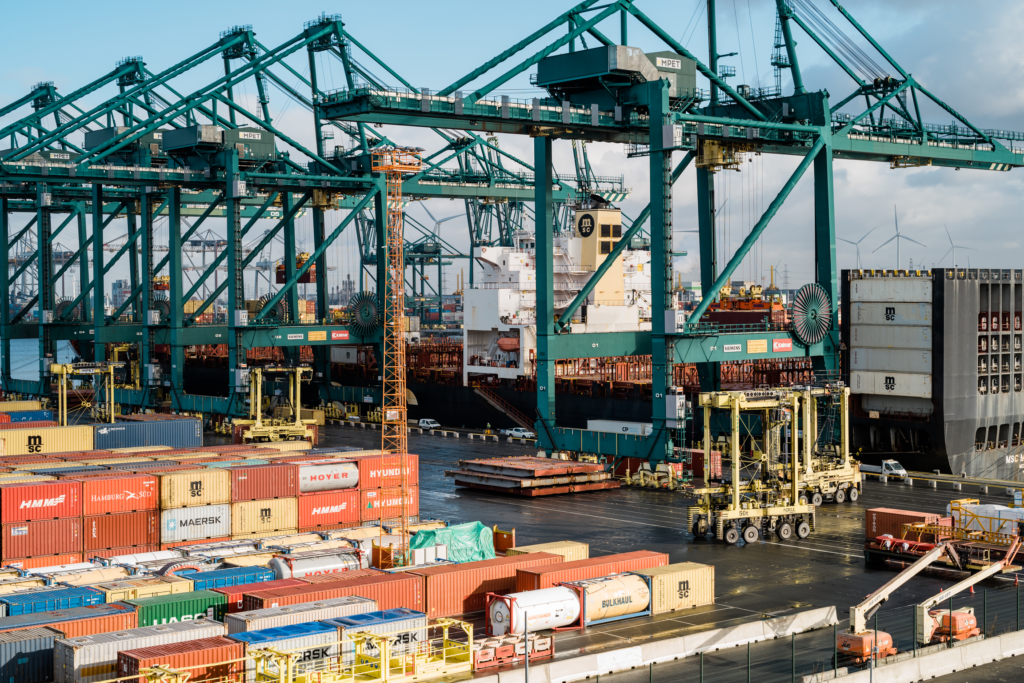Hundreds of kilograms of drugs seized, dozens of drug-related arrests carried out and large sums of money confiscated: the Belgian authorities have released an overview of last year's results in the fight against cocaine smuggling in the Port of Antwerp.
The Port of Antwerp, together with Rotterdam and Hamburg, is used the most by international drug organisations to smuggle cocaine into Europe. Partly as a result of a series of violent drug-related crimes in Brussels, the outgoing Federal Government has made the fight against drugs a top priority.
"In 2024, 243 people were convicted of cocaine smuggling via the Port of Antwerp and almost €71 million were confiscated," said outgoing Minister of Justice and the North Sea Paul Van Tigchelt (Open VLD), who called the Maritime Police a "crucial link" in the fight against cocaine smuggling.
Top targets are also increasingly being extradited from former free ports such as the United Arab Emirates, he stressed. "The net is starting to close but we are far from there yet. Organised crime is constantly adapting. Our services must constantly innovate and adjust."
Path of least resistance
Outgoing Interior Minister Annelies Verlinden (CD&V) stressed that despite the visible gains in Antwerp, "organised crime will always seek the path of least resistance. Therefore, we must remain vigilant and continue to make the necessary efforts during the next legislative term."
Belgium is committed to mapping out maritime cocaine smuggling and combating the criminal networks behind it – on various fronts and with several units, she said. "It is a difficult battle, but one that we as a government must continue to wage, partly through international cooperation."
The government has set up the Maritime Police, established a National Drug Commissariat and invested in the Federal Judicial Police. "The efforts of the Federal Police, but also the Local Police, are paying off," Verlinden said.

A customs K9 unit using a Belgian Malinois search dog at the Port of Antwerp. Credit: Belga / Jonas Roosens
In 2024, the Maritime Police and its Port Security Corps made 128 drug-related arrests (of which 16 were minors) in the port area, including 98 arrests of people who were recruited by criminal organisations to retrieve drugs smuggled in containers. Of the arrested people, 51 have the Belgian nationality, 48 were Dutch and the others were Albanian, Croatian, French or Bulgarian nationality.
"Thanks to the Port Security Corps established in 2023, the port area can be patrolled more than before and the Maritime Police can be on-site more quickly when, for example, a report of a haul comes in," the press release reads.
The Antwerp Federal Judicial Police also opened 91 new investigations on internationally organised cocaine smuggling via the seaport, and the court handed down a total of 243 convictions in cases on the import of drugs via the port.
Nearly €71 million seized
Having opened 91 new files in connection with maritime cocaine smuggling via the port, the Federal Judicial Police (FGP) Antwerp focus on the top of the criminal organisations, their assets and the brokers – the intermediate layer of people that recruits and directs the perpetrators of violent crimes, hauls, money laundering operations, etc.
Cases were also opened or furthered based on information gathered from home and abroad. In 2024, the FGP Antwerp arrested and interrogated a total of 234 people in the context of its ongoing investigations, which also led to seizures of drugs and assets and the dismantling of criminal networks.
Meanwhile, the court in Antwerp and the court in East Flanders (which both have jurisdiction over the port area) handled a total of 55 cases involving the import of drugs via the port: a total of 243 convictions were handed down, in which 852 years in prison were imposed, as well as fines amounting to a total of €6,817,600 euros. Additionally, €70,798,138 were confiscated and no less than 1,720 years of port ban were imposed.

